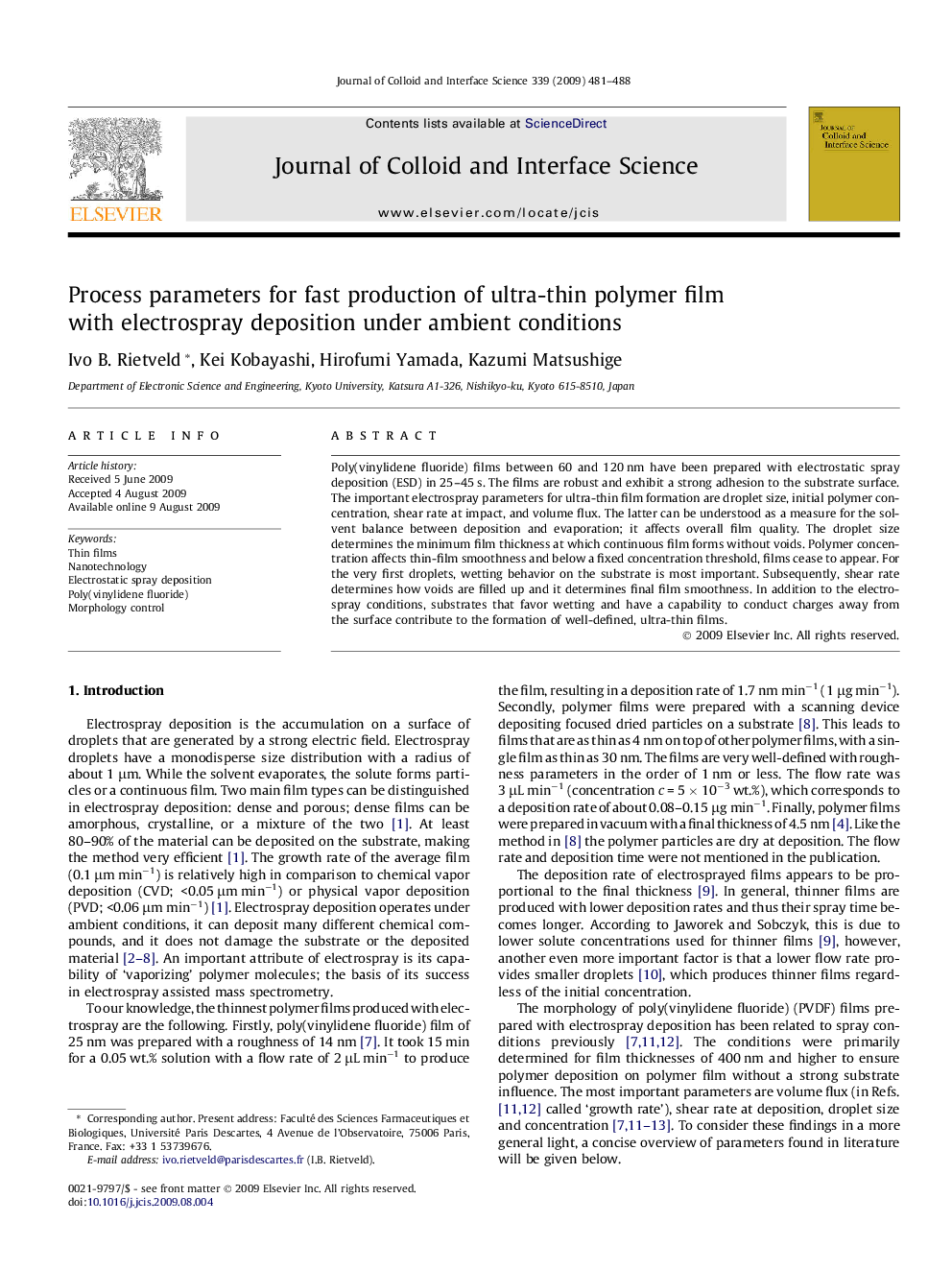| کد مقاله | کد نشریه | سال انتشار | مقاله انگلیسی | نسخه تمام متن |
|---|---|---|---|---|
| 610290 | 880645 | 2009 | 8 صفحه PDF | دانلود رایگان |

Poly(vinylidene fluoride) films between 60 and 120 nm have been prepared with electrostatic spray deposition (ESD) in 25–45 s. The films are robust and exhibit a strong adhesion to the substrate surface. The important electrospray parameters for ultra-thin film formation are droplet size, initial polymer concentration, shear rate at impact, and volume flux. The latter can be understood as a measure for the solvent balance between deposition and evaporation; it affects overall film quality. The droplet size determines the minimum film thickness at which continuous film forms without voids. Polymer concentration affects thin-film smoothness and below a fixed concentration threshold, films cease to appear. For the very first droplets, wetting behavior on the substrate is most important. Subsequently, shear rate determines how voids are filled up and it determines final film smoothness. In addition to the electrospray conditions, substrates that favor wetting and have a capability to conduct charges away from the surface contribute to the formation of well-defined, ultra-thin films.
Poly(vinylidene fluoride) films of 100 nm and thinner can be made with electrostatic spray deposition in approximately 45 s. Polymer deposition in solution gives rise to tough films with good substrate adhesion.Figure optionsDownload as PowerPoint slide
Journal: Journal of Colloid and Interface Science - Volume 339, Issue 2, 15 November 2009, Pages 481–488